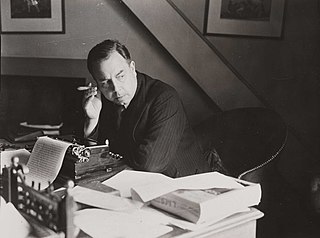A Quote by Christian Nestell Bovee
Sensitiveness is closely allied to egotism; and excessive sensibility is only another name for morbid self-consciousness. The cure for tender sensibilities is to make more of our objects and less of our selves.
Related Quotes
Most of us live our lives desperately trying to conceal the anguishing gap between our polished, aspirational, representational selves and our real, human, deeply flawed selves. Dunham lives hers in that gap, welcomes the rest of the world into it with boundless openheartedness, and writes about it with the kind of profound self-awareness and self-compassion that invite us to inhabit our own gaps and maybe even embrace them a little bit more, anguish over them a little bit less.
I believe one of our souls' major purposes is to know, love, and express our authentic selves. To live the life and be the person we were created to be. However, our true selves only emerge when it's safe to do so. Self-condemnation, shame, and guilt send your true nature into hiding. It's only in the safety of gentle curiosity, encouragement, and self-love that your soul can bloom as it was created to do.
But the point is, now, at this moment, or any moment, we're only cross-sections of our real selves. What we really are is the whole stretch of ourselves, all our time, and when we come to the end of this life, all those selves, all our time, will be us - the real you, the real me. And then perhaps we'll find ourselves in another time, which is only another kind of dream.
More than anything else, kindness is a way of life. It is a way of living and walking through life. It is a way of dealing with all that is-our selves, our bodies, our dreams and goals, our neighbors, our competitors, our enemies, our air, our earth, our animals, our space, our time, and our very consciousness. Do we treat all creation with kindness? Isn't all creation holy and divine?
It's tempting to think that decisions that are not life-and-death are therefore unimportant, and that the little compromises we make don't matter to our bottom line or our spiritual selves. How many of us are tempted, in business, to make a less-than-ethical decision? To appropriate someone else's idea or fudge some numbers? We have to remember that maintaining our ethical and spiritual selves is absolutely linked with achieving the degree of success we're working toward.
Togetherness, for me, means teamwork. It makes us reflect how completely dependent we are upon one another in our social and commercial life. The more diversified our labors and interests have become in the modern world, the more surely need to integrate our efforts to justify our individual selves and our civilization.
I consider morals and aesthetics one and the same, for they cover only one impulse, one drive inherent in our consciousness - to bring our life and all our actions into a satisfactory relationship with the events of the world as our consciousness wants it to be, in harmony with our life and according to the laws of consciousness itself.
Question of "Where We Begin" turns to be not only a formal question but also a question central to the attempt to make sense of things about which it is very difficult to make any sense - illness, death, despair, suicides, cruelty, the various troubles love can provoke, our inability to really know one another when we our inner selves are walled off by our bodies.
Immensity is always there, but we so often become numb to it, or deceive ourselves into thinking our own lives and selves are what's large. Step into the ocean or walk on Mount Tamalpais, and that kind of amnesia and self-centeredness isn't possible. Enter the natural world at all, you see existence emerge, ripen, fall and continue, and you can't help but feel more tender towards self and others. That summoning into the large and the shared is what poems exist also to do.































